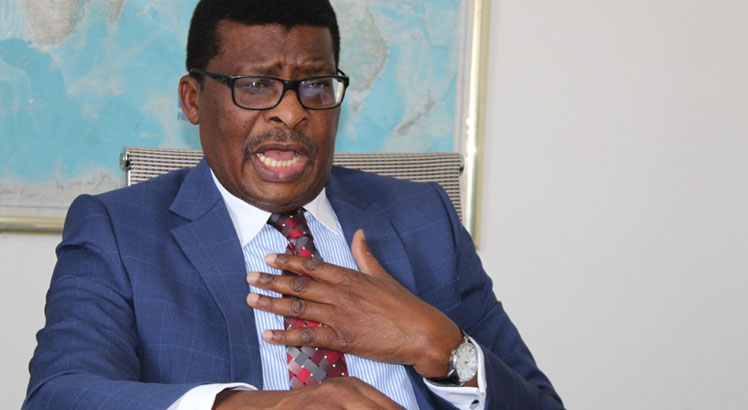Deliver or quit,ACB, DPP dared
Peoples’ Transformation Party (Petra) president Kamuzu Chibambo has challenged heads of State law enforcement agencies to deliver in the fight against corruption or resign from their respective offices.
Speaking during a press conference in Blantyre yesterday, he said he was particularly frustrated with how the corruption related case involving United Kingdom-based businessperson Zuneth Sattar is being handled. He said the case was portraying the country’s efforts negatively.
In apparent reference to the tension between the Anti-Corruption Bureau (ACB) and the Directorate of Public Prosecutions (DPP) over consent on corruption cases, Chibambo, a lawyer whose party is a member of the nine political-party governing Tonse Alliance, said it is unfortunate that the country was being held to ransom on account of certain spurious actions within the justice system.

He said: “The huge mess existing within the purview of law enforcement agencies has to be sorted out now. If for any reason you find these cases too hot, then resign now or show cause why you must not be fired?”
The Petra president observed that even the bold steps President Lazarus Chakwera took to address the vice were being questioned by some people on account of the overt inconsistencies within the system.
Chibambo said: “The President did what he could in the early stages of the case [Sattar] as soon as the report on the case was issued by Anti-Corruption Bureau. Some people are now laughing at the steps the President took because of the slow progress.”
He wondered why the evidence volunteered by the National Crimes Agency (NCA) of the United Kingdom on the Sattar case was not being used when it is for the good of the country.
Said Chibambo: “If evidence, at no cost to you, has been volunteered that would help your nation recover money or any asset that may have been ill-gotten, why would anyone in their right sense fault it?
“The NCA volunteered or provided evidence of suspected wrong doing which, if properly applied, could prove vital for the economic well-being of our nation. Why fight it? And, in whose interest?
“In any case, if the allegations against Sattar and others who are alleged to have illicitly benefitted from proceeds of crime are false, is the court not the right place to prove the same? Do not stand in the way of the Rule of Law and cause the Malawian people to suffer for no good reason at all.”
In June, the ACB issued a report on Sattar’s dealings and named 53 public officers, including the Vice-President Saulos Chilima.
Following the report, the President withheld Chilima’s delegated functions pending investigations on the case.
Chakwera also fired Police Inspector General George Kainja and suspended State Residences chief of staff Prince Kapondamgaga as well as Public Procurement and Disposal of Assets board chairperson John Suzi Banda.
ACB director general Martha Chizuma could not be reached when contacted yesterday, but DPP Steven Kayuni said he could not comment on the Sattar issues because his cases were in court.
But governance commentator Boniface Chibwana said sentiments of Petra’s president were not necessarily new to the country’s citizens.
He said: “The fact that he has come out into the open to criticise the government he is part of smacks of critical underlying and systemic political challenges characterising the Tonse Alliance government with respect to institutional building processes like consultation, communication and collective decision-making.”
Chibwana, who is also national coordinator of the Catholic Commission for Justice and Peace, said it was clear the alliance partners were not engaging in effective and honest internal consultations to managing public policy affairs.
He said: “Ultimately, this is indicative of frustrations from certain quarters within the Tonse Alliance government and that they have opted to buying public sympathy on public interest problems rocking the country.
“The development has also unearthed striking but quiet cracks and differences among the alliance partners in running the government especially under the turbulent socio-economic context.”
Another governance and human rights advocate Undule Mwakasungula in a press statement yesterday said the ACB lone approach in dealing with prosecution of cases has been making Malawians point a finger at other agencies such as the Judiciary, DPP, Attorney General and Minister of Justice.
He said there was need for the ACB to create synergies or understand the advice offered by other actors in the fight against corruption guided by the Legal Enforcement Coordination Strategy.
During the briefing, Chibambo also raised a number of other issues ranging from the current foreign exchange drought and to the general economic instability in the country.





